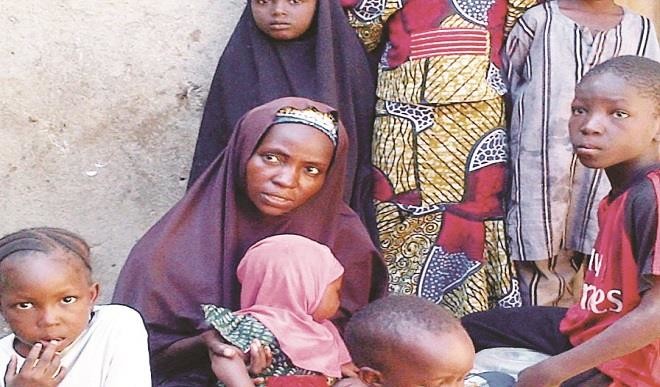Katsina: The forgotten IDPs
The Boko Haram insurgency which has engulfed the North Eastern states of Borno, Yobe and Adamawa, has greatly displaced many families and broken countless homes across the country. Households have also been separated by death or distance across the country. Many of such displaced families have found their way to Katsina State to either reunite […]


The Boko Haram insurgency which has engulfed the North Eastern states of Borno, Yobe and Adamawa, has greatly displaced many families and broken countless homes across the country. Households have also been separated by death or distance across the country.
Many of such displaced families have found their way to Katsina State to either reunite with lost relations and families, or to escape the horrors of life especially the menace of the insurgents.
It is estimated that there are about one thousand of such victims of insurgency that were displaced and scattered across Katsina state for close to two years, that have been neglected by government agencies like the National Emergency Management Agency and that of the state emergency agency, whose responsibility it is to cater for such victims.
In Katsina, the internally displaced persons have been left in the hands of few nongovernmental and voluntary organisations, as well as philanthropists who assist them with basic needs like shelter, food, clothes amongst others, to enable them begin life once again.
Most of these families can be found at Kofar Kaura, Tudun Matawalle, Sabuwar Unguwa, Tudun Yan lihida and Kasuwar Yar Kutungu. What makes these IDPs different from others is the fact that they are not stationed in a particular place meant for them, but they are putting up in rented houses and others are squatting in houses or rooms provided by well wishers.
A visit to such houses shows the deplorable living conditions they are living in. A two bedroom house accommodates between thirty and fifty persons. Lack of food, medicals and the unhealthy environment is a great cause of concern for the inhabitants well being.
Some of the residents spoken to share their horrifying stories of having trekked for days, before they met people struggling to board a lorry which was heading to an unknown destination. Only later were they to discover that they had arrived Katsina in the late hours of night.
Maryam Abubakar, a married woman with 6 children who hails from Baga in Borno state, resides in one of the rented houses at Tudun Matawalle, and says life is not easy for them, but at least they are better off than the war zone they had recently left.
Abubakar resides in a two bedroom house shared by four other women and twenty three children. She said for over nine months she had been living there ,and receives help and support from the women Daawah foundation. A tailor by profession, Abubakar believes that with a sewing machine and a refresher course she can start all over again.
Rabi Ahmad, a mother of two said her dream is coming alive once again as she had enrolled in Primary Six to complete her basic education, which was stunted following the insurgency. “All I want is to go further to Secondary school and do more than this. I really want to be learned,” she added.
At Kofar Kaura, it was observed that a familiar trend of over stretched facilities was present. Aisha Rufai, a resident said for the past one year they have been living in the rented house. It was only last week that she was able to hear the voice of her parents since they parted ways following an attack on their village in Yobe State. She said it was with joy that she met her parents as she had already lost hope that they are alive. She narrated that their village was attacked and many dispersed. Till today many families are trying to link up with their relations if eventually they can.
However for Aisha, who has nine children, it is a different tale of having to learn that her husband was killed just as another of her uncles, noting that his wife and other children numbering close to 15 are in Dutsinma town.
Now our caretaker has issued us a quit notice on the ground that we have many children in the house, and I wonder how we are going to cope, she added.
Asiya Lawal of the women Daawah association, said it was one of their little ways of coming to the aid of the people by canvassing support no matter how little to assist. She said, many people have provided clothes, accommodation and some monies which we used in taking care of them.
According to her, when we started we had about 120 women with 312 children, but the number keeps growing over time and resources are dwindling.
Disturbed by the situation the state emergency management agency SEMA has stepped in to shoulder some of the responsibility, which hitherto were left unattended to.
The Executive Secretary of SEMA, Aminu Waziri, said the agency has so far screened no fewer than seven hundred and nine persons, out of which were a number of 89 households.
He said, hitherto these IDPs were mostly supported by Daawah Foundation along side other organisation saying that the screening was aimed at ascertaining their number preparatory to formal distribution of relief materials to them and support from the government.
